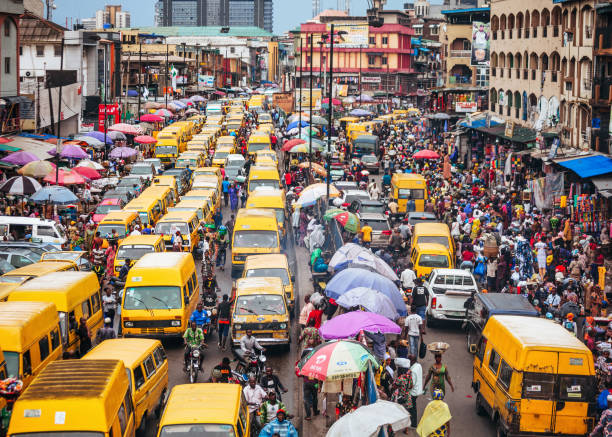Economy
The Nigerian Economic Crisis: The Struggles of the People, by Yasir Shehu Adam

Since the start of President Tinubu’s administration, the gap between the rich and the poor in Nigeria has widened drastically. Every day, more people fall into poverty, while the upper class shrinks. The number of Nigerians living in hunger, uncertain about where their next meal will come from, continues to rise. Nearly 90% of the population struggles to afford food, and only a small 10% can manage to eat three square meals daily.
For many Nigerians, survival has become the top priority. Health, education, and other basic needs are being sidelined as people scramble just to get by. Yet, despite this crisis, the cost of living keeps going up. School fees are climbing, transportation costs are soaring, and prices of essential goods are out of reach for many. Sadly, the current administration has done little to improve the situation, leaving citizens to fend for themselves.

As the number of uneducated and unemployed people increases, crime rates rise, threatening the peace and stability of society. It’s almost as if this administration is giving free rein to criminals like kidnappers and bandits to expand their ranks.
In Nigeria today, it seems that the laziest people enter politics and enjoy a life of luxury, while the hardworking masses struggle to survive. The big question remains: Is there any hope for change? Can Nigeria break free from the grip of its self-serving political elite?
The solution lies in reform. First and foremost, Nigeria needs to reduce the cost of governance. Cutting politicians’ salaries and allowances would discourage those who use politics as a quick and easy route to wealth.
There was once a time when the phrase “No food for lazy man” was a guiding principle in Nigeria. It encouraged hard work, self-reliance, and the pursuit of honest livelihoods. But in today’s political landscape, this saying seems to have been flipped on its head. Politics has become a shortcut for the lazy to amass wealth and live in comfort, while the hardworking citizens who truly embody this phrase are left struggling.
In the past, Nigerian politics was seen as a noble endeavor. Leaders like Sir Abubakar Tafawa Balewa, Abubakar Tatari Ali, Abubakar Rimi, Nnamdi Azikiwe, Obafemi Awolowo, and Ahmadu Bello served with integrity and a commitment to national progress. But over time, the values that guided early leaders have eroded. Politics has now become a business—an industry where personal gain trumps public service. As a result, hardworking Nigerians who uphold the values of merit and effort are left disillusioned and impoverished.

The current political system allows anyone to succeed, regardless of qualifications or a commitment to public service. If you know how to “play the game,” you’re in. Even people with shady backgrounds or no history of competence are welcomed into the system and rewarded with wealth. All it takes is the right connections, loyalty to the right godfathers, or the ability to manipulate the system.
No other profession in Nigeria offers such wealth with so little effort as politics. Politicians often spend more time on personal business ventures and travel than on governance, leaving the real work to civil servants. Meanwhile, the teacher who dedicates decades to shaping young minds, the farmer who toils under the sun, or the civil servant who shows up to work daily can barely make ends meet.
According to “The Economist,” Nigeria’s lawmakers are some of the highest paid in the world, earning far more than their counterparts in wealthier nations like the U.S. , the U.A.E, France, Germany, Russia and the U.K. For instance, a Nigerian senator reportedly earns around ₦13.5 million monthly in “running costs,” excluding salary and allowances. Meanwhile, Nigeria’s minimum wage is a mere ₦30,000—a figure that can hardly sustain a family in today’s economic situation.
This article was written by Yasir Shehu Adam (Danliman), young journalist and writer from Bauchi.






















